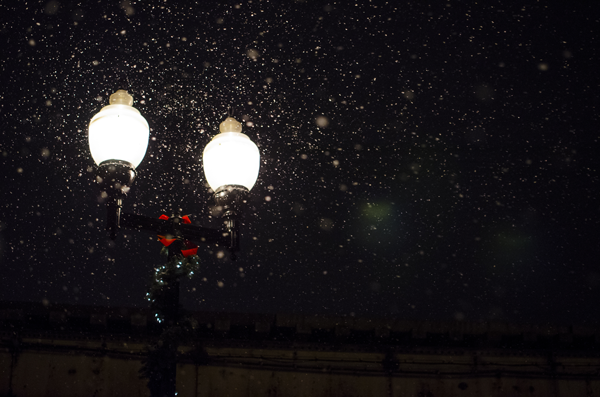
What My Near-Death Experience Can Teach You
In my early twenties I had the pleasure of renting a home with 2 of my best buds. We had a lotof fun in that house. In what should be a general blur in my memory bank (like I said, we had a lot of fun) one particular day was scary enough to be forever ingrained in my memory.
Home alone, I lugged my clothes hamper downstairs to throw in a load of laundry. As I made my way towards the laundry room I realized something was wrong. There was a faint burning smell in the air. The true detective that am, I followed my nose to one of our electrical sockets. Now I’m no electrician, but I’m pretty sure sockets aren’t supposed to smoke.
Naturally I panicked. In my defense, high-school home economics had not covered this.
Thankfully I had enough common sense to flip the breaker and caught the problem in time. Whew, crisis averted.
So… it may not be quite a near-death story, but I openly admit to having a slight flare for the drama.
Looking back, I wonder if I missed the warning signs of an arising electrical issue.
Regardless of the age of your home, many electrical problems will show warning signs before the situation becomes serious.
5 Signs of Electrical Problems
Electric Shocks
During the winter months, you may notice a shock after walking across carpet… this is most likely from static and not something to worry about. However, if you feel a mild shock or tingling when touching an appliance, this could be cause for concern. This could be a sign of improper wiring.
Dimming Lights
Lights that chronically flicker and dim can be a sign of loose connections or a heavily loaded circuit.
Overloaded Outlets
Heavily used outlets can create a fire hazard if they generate too much heat. Extension cords aren’t a permanent fix to the problem of too few outlets and they may not be able to handle the load placed on them. These can become a fire or shock hazard if damaged.
Burning Smell or Sparks
Smoke or a smell of burning metal or plastic may be caused by a bulb of the wrong size or wattage being used, or a sign of burned or overheated wiring. Occasional sparks when you first plug in an appliance are not unusual. Sparks that are large or happen frequently will indicate a problem with your outlet or the circuit. If you hear a popping sound, it may signal that a wire may be loose.
Hot Receptacles
Receptacles, switch plates, cords, and plugs should never be hot to the touch or discoloured from heat. This could mean a loose connection or other problem. You should occasionally check the area around your ceiling light fixtures for warmth because not all fixtures are well insulated.
Diagnosing and repairing problems can be tricky, so you’ll need to follow safety procedures. For your safety and that of your home, you should consult a qualified electrician.
POPULAR POSTS
-
 June 30, 2025Wildfire Preparedness in BC: What Every Homeowner Needs to Know
June 30, 2025Wildfire Preparedness in BC: What Every Homeowner Needs to Know -
 July 3, 2025Understanding Strata Insurance in British Columbia
July 3, 2025Understanding Strata Insurance in British Columbia





















